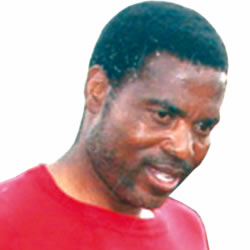Xenophobic attacks: Apartheid again?
resurgence of attacks on foreigners in South Africa has brought back to the fore the huge gulf existing between the political ideal of integration and the practicalities on the ground.
It is a matter of historical record that prior to the advent of democracy in 1994; African immigrants faced discrimination and even violence in South Africa, with much of it triggered by the institutionalised racism of the time. Seventeen years later, with democratisation, the threat of being attacked in South Africa simply because one is a foreigner still subsists. The Young Communist League of South Africa has compared the xenophobic attacks to “another form of apartheid”.
Between 2000 and March 2008, at least 67 people died in what were identified as xenophobic attacks. In May 2008 a series of riots left 62 people dead; although 21 of those killed were South African citizens. The attacks were apparently motivated by xenophobia.
Xenophobia is the unreasonable fear, distrust, or hatred of strangers, foreigners, or anything perceived as foreign or different. It can manifest itself in several ways: victimisation by police or at the workplace, brutal assaults and murders or other criminal targeting in a community, mass expulsion from a community or even country, and in the final extreme – ethnic cleansing.
The 2008 xenophobic violence in South Africa was primarily directed against foreigners living in some of the poorest urban areas.
However, it also impacted on those who acquired citizenship by virtue of their specialized skills, such as medical doctors, academics, scientists and engineers.
It did not spare those with legitimate work and study permits, mostly from Mozambique, Somalia, Zimbabwe and Nigeria.
While the feelings of xenophobia are obviously not widespread, experts say they are present in significant magnitude to warrant urgent state intervention.
Observers warn that these small groups of people in diverse locations of South Africa who are opposed to living and working with foreigners have the potential to spoil the entire country’s image.
Poor South Africans said to be at the centre of attacks on their fellow Africans reportedly blame the latter for many of the ills in their country, including unemployment and crime. The May 2008 xenophobic violence was sparked partly by accusations of foreigners ‘stealing’ local jobs.
Labour Minister Membathisi Mdadlana said at the 21st Annual Labour Law Conference in Sandton, Johannesburg that it was a misconception to conclude that migrants ‘steal’ jobs from South Africans.
“The opposite is actually true. They are job creators, first for themselves – and for the rest of us,” Mdadlana said.
Statistics also show that visitors from Africa and the Middle East spend more in South Africa per head than those from even the United States, and seven of the top spending countries in 2005 were from other southern African countries.
Ironically, these countries’ nationals are those usually targeted for violent attacks. Recently, a Zimbabwean in Limpopo Province was stoned to death by South Africans in Seshego. An ANC councillor was arrested in connection with that stoning and the party has responded by saying that while a person is innocent until proven guilty, they will not in any way protect anyone involved in such heinous acts and want to see any such person appropriately punished.
Media reports are that the Zimbabwean man was the victim of “mob justice” after he had been accused of murdering two South Africans during a robbery, as well as raping a young girl. However, there are conflicting reports and even if it is true, the law demands that an accused be charged in a properly constituted court.
The incident cannot be viewed in isolation as Limpopo police have said foreigners in the area are under intense xenophobic pressure.
Several Somali-owned shops in the South African town of Rothenberg were in early June ransacked by local gangs, according to eyewitness reports.
Dahir Mohamed, a Somali merchant, said at least 10 shops were looted and three were set on fire after all valuables and cash had been taken.
Fortunately, no Somali was injured, Mohamed told Radio Mogadishu, though they all fled in fear. He claimed that US$2 million was lost and when shop owners called local police, they did not get any response.
Mohamed alleged that a Chinese businessman whose shop came under attack was quickly attended to by the police. China has a diplomatic mission in South Africa while Somalia does not, Mohamed noted.
On May 11, more than 50 Somali-owned shops in the city of Port Elizabeth were destroyed and looted by local residents. Since the fall of Somalia’s military regime led by Mohamed Siad Barre in 1991, more than a million Somalis have taken refuge in many nations around the world, including South Africa.
And in the last few years, South African gangs have launched brutal attacks against the Somali community, burning refugees alive or beating them to death. South African police say that xenophobia, and not criminality, is the main motivating factor in the attacks.
Ignorance may well-be behind these anti-foreign attitudes among a small group of South Africans, and this perhaps demonstrates how little is generally and publicly known and appreciated about the help other countries rendered to help free South Africa from apartheid.
Various organisations have expressed shock and anger at these attacks and want justice to not only be seen to be done, but to actually be served.
Some individuals – both South African and foreign – have formed organisations to help victims of attacks as well as carry out community enlightenment initiatives.
The ANC in Limpopo said it learnt the news of the stoning in the province with “shock and utter disgust”.
“These violent acts are completely unacceptable because they are incompatible with a democratic South Africa,” ANC Limpopo spokesman David Masondo said.
“The allegation that the Zimbabwean killed two South Africans during robbery is not a justification for South Africans to take the law into their hands.’
Limpopo police spokesman Brigadier Hangwani Mulaudzi said earlier that allegations were levelled against foreigners in the area that they were involved in criminal activities and a group of people then hunted them down.
“Unfortunately, there was a Zimbabwean national who was cornered by this group and then they stoned him to death. Other victims had their houses vandalized and their belongings were thrown out of their houses,” Mulaudzi said.
The police public order unit from Polokwane managed to disperse the mobs and were still deployed in the area earlier this week to keep the peace.
“These irresponsible people wanted to cause mayhem but the situation has calmed down now,” said Mulaudzi.
The ANC’s Masondo called on the provincial government to “develop concrete economic programmes with the Zimbabwean government to improve the conditions of our respective citizens”.
The Young Communist League of South Africa said it found it “deplorable” that the community took the law into their own hands “when they should be allowing police and the courts to do this”.
YCLSA spokesman Mafika Mndebele said police should protect “all our people”, irrespective of what allegations were levelled against them.
“We further call on our people to realise that we are all human beings, we are all Africans and that irrespective of our nationality, no one’s life is (cheap).
Xenophobia must be fought just as apartheid, (as) another form of hatred,” Mndebele said. – The Southern Times.











Comments